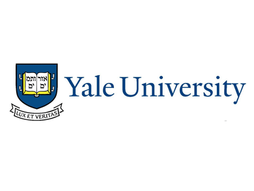Purdue University's Summer College for High School Students - Should You Apply?
A great way to spend your high school summer is to explore opportunities provided by colleges, and Purdue University’s Summer College is no exception. The program can be a great way to get a brief college course experience, especially if you’re interested in applying to Purdue University in your senior year.
If this is the first time you’re hearing about this opportunity and are curious to learn more, then this article will help break down the information and allow you to see if it’s a good fit for you.
Is Purdue University's Summer College prestigious? While the pre-college programs may be popular and even fairly selective, Purdue University’s Summer College is not as prestigious as other programs (such as MIT RSI, or the Anson L. Clark Scholars Program). You are encouraged to apply if you are looking for a paid option that allows you to gain access to a college-level academic/residential experience but note that participating in these pre-college programs will not add too much of an impact on your resume unless paired with more competitive programs open to high schoolers, or research projects.
What are the dates for the program? The application for Summer 2024 will open on December 1, 2023. There is no specific deadline to submit your application – decisions will be made on a rolling basis, so students who apply first will be reviewed on a first-come, first-served basis. Therefore, if you’re interested, you should apply for the program as soon as possible.
Are you eligible for Purdue University's Summer College?
First, before you learn about the program, we need to make clear the applicant requirements that Purdue is looking for. All applications are reviewed, and decisions are made on a holistic review process. However, they place priority considerations on students who meet the following criteria:
Have a high school GPA of 3.30 or higher on a 4.00 scale.
Have completed grade-level-appropriate college prep coursework that is included on the transcript.
Will be at least 16 years old and have completed the sophomore year of high school by the time Purdue coursework begins. Younger students may apply.
If you’re an international student, Purdue requires that you possess a visa that allows study in the U.S. to complete residential classes, along with providing proof of English proficiency if you’re from a non-English speaking country.
With the eligibility criteria out of the way, let’s talk about the details of the program itself.
What are the enrollment options at Purdue?
Purdue University's Summer College provides a variety of options that allow students to participate, so if one option doesn’t work for you, try to see if others are available.
Residential
For a maximum of 7 credit hours, students who wish for the traditional college experience can take courses while living on campus for up to 4 weeks. For a fee of $1,469 (based on the Summer 2023 rate), you can receive room and board as well, although breakfast will not be provided. Moreover, you may be granted access to campus resources like health facilities, libraries, student success programs, and summer activities. For a list of popular classes that 4-week residential students were able to choose from, please click here.
However, if you wish for a shorter stay, then you may apply for the intensive 1-week or 2-week opportunities. These short-term “fun-sized” classes, while condensed, still provide the chance for students to earn college credit and experience life on campus. For a list of these “fun-sized” classes, please click here.
In addition, residential program attendees will be assigned a peer mentor, who is a current undergraduate student at Purdue. Here is a sample schedule:

Commuter
If you live close to Purdue’s campus, then you may prefer to live at home but attend courses in person. Don’t worry – the commuting option was built with you in mind. Commuter students are granted the same access privileges to campus facilities and extracurricular activities as residential students. They also have the same 7-credit-hour limitation as residential students do. For a list of popular classes that commuters can take, please click here and check the “residential courses” options.
Online
If neither residing nor commuting are viable options, then luckily, you have the opportunity to take these classes online. You can choose whether you would like to attend courses for 4 or 12 weeks, and credits may be transferable to another institution. For a list of popular classes that online viewers can take (which is different from the options available for residential/commuter students), please click here.
How do I choose the right enrollment option?
If you feel that there are too many choices even after eliminating some of the non-feasible options, ask yourself the following questions. In that way, when you make a choice, you can align your summer with the goals and priorities you have in mind.
What are you looking to gain from your program?
This may seem broad, but the best steps are to find out what you prioritize:
If you are looking to get an immersive taste of college life then the residential or commuting option might be better.
If you are looking for flexibility to attend these courses and do other things over the summer, then the online version will be more compact.
If you are aware of your summer schedule, then you should consider how that affects which programs you are available for. For example, if you have large swaths of free time during the summer, then the 4-week modules may be better for you.
If you know what you want to study, then you may pick out the courses that are related to that field.
If you are looking to learn more in areas related to your intended major, then you should look at courses that are related to your interests. Otherwise, you may want to look at fun courses on topics you have not been exposed to before.
When you divide your thoughts into clear categories, you can then pick out the ones that matter most to you and apply them to your decision-making process.
How much time are you willing to commit?
If your summer is looking packed, then it’s best to stay away from longer-term commitments like the 4-week or 12-week modules. Instead, you should opt for short-term “fun-sized” classes. On the other hand, if you want to immerse yourself in a deeper level of academic study, then longer-term commitments should be better for you.
Are there any cost-based constraints?
Besides the $60 application fee, payment will differ between students based on the number of credit hours and residency status.
Regular course costs:
Indiana residents: $347.85 per credit hour for 1-5 credit hours, or $2,498.00 for 6-7 credit hours
Domestic nonresidents: $948.30 per credit hour for 1-5 credit hours, or $7,198.50 for 6-7 credit hours
International: $1,018.30 per credit hour for 1-5 credit hours, or $7,853.50 for 6-7 credit hours
Room and board (applicable to all types of students): $1,469.00
1-week, 1-credit course costs OR 2-week, 1-credit course costs:
Indiana residents: $347.85 per credit hour
Domestic nonresidents: $948.30 per credit hour
International: $1,018.30 per credit hour
Room and board (applicable to all types of students): $316.25
1-week, 2-credit course costs:
Indiana residents: $695.70 per credit hour
Domestic nonresidents: $1,896.60 per credit hour
International: $2,036.60 per credit hour
Room and board (applicable to all types of students): $316.25
Reviewing these options and finding which course type fits best into your schedule will be helpful in making your decision.
Our Review
Will this program ensure that you’ll get into top universities? The short answer is most likely no – the program is not necessarily designed to improve the skills of students or hone their talents, but the aim seems to open courses during the summer while allowing prospective high schoolers to explore the Purdue campus. It’s unlikely that admissions officers will view this experience as indicative of high caliber of a student.
However, does that mean you shouldn’t do it? Not at all!
The program can be useful in different ways beyond the scope of boosting your chances of getting into your dream college. If you’re interested in Purdue University, then this program will be perfect for you to gauge the campus, atmosphere, and academic environment. If you decide to apply for the college in your senior year, you may have a higher possibility of being accepted because by having been enrolled in the summer program, you have expressed interest in the university.
Another great idea is to test whether you like courses from a certain major. For many young students, picking a major is incredibly difficult and requires a lot of thinking, but if you have taken college-level courses in your high school years, you can see whether they suit your interests or if you can rule them out.
A plus is that some of the courses offered in this program are very niche – for example, the class, “Atoms at Work: Explore Nuclear Energy with the Purdue Nuclear Reactor,” provides attendees with a combination of interactive lectures and hands-on experiments at Purdue’s Nuclear Engineering and Radiation Laboratory (NERL) for a week. You can reasonably take courses in general math or science or engineering – but nuclear engineering? Most likely, the only viable way you can gain exposure in this field during high school is to take this course at Purdue’s Summer College, and then you can determine whether you’d like to continue exploring this area in college.
What about research? Many high school students lack the resources to learn about research, but “Planning for Research in College: What You Can Do Now,” another one-week course, will teach you how to prepare for undergraduate research, develop a list of potential research interests, create a list of potential research mentors, tour Purdue’s research spaces, and more. If you’re a student who’s been curious about how to begin your research career, this may be the perfect place to begin.
The program is also a valuable opportunity for networking. If you are residential or planning to commute, you can meet dozens of other students who may share the same courses and interests as you, and you can build a network of friends from this program. In addition, residential students will be assigned a peer mentor who is a current undergraduate Purdue student, so you may ask them questions about their aspirations, college career, helpful tips, and so on.
Overall, Purdue University’s Summer College provides multifaceted benefits, from college testing, testing out potential majors, taking exciting classes, and networking, so while the program may lack some of the prestige of other famous summer programs, this is still a great one to pursue if you feel that the program resonates with you.
Additionally, you can also work on independent research in AI, through Veritas AI's Fellowship Program!
Veritas AI focuses on providing high school students who are passionate about the field of AI a suitable environment to explore their interests. The programs include collaborative learning, project development, and 1-on-1 mentorship.
These programs are designed and run by Harvard graduate students and alumni and you can expect a great, fulfilling educational experience. Students are expected to have a basic understanding of Python or are recommended to complete the AI scholars program before pursuing the fellowship.
The AI Fellowship program will have students pursue their own independent AI research project.
Students work on their own individual research projects over a period of 12-15 weeks and can opt to combine AI with any other field of interest. In the past, students have worked on research papers in the field of AI & medicine, AI & finance, AI & environmental science, AI & education, and more! You can find examples of previous projects here.
Location: Virtual
Cost:
$1,790 for the 10-week AI Scholars program
$4,900 for the 12-15 week AI Fellowship
$4,700 for both
Need-based financial aid is available. You can apply here.
Application deadline: On a rolling basis. Applications for fall cohort have closed September 3, 2023.
Program dates: Various according to the cohort
Program selectivity: Moderately selective
Eligibility: Ambitious high school students located anywhere in the world. AI Fellowship applicants should either have completed the AI Scholars program or exhibit past experience with AI concepts or Python.
Application Requirements: Online application form, answers to a few questions pertaining to the students background & coding experience, math courses, and areas of interest.
One other option – Lumiere Research Scholar Program
If you are interested in doing university-level research then you could also consider applying to the Lumiere Research Scholar Program, a selective online high school program for students founded with researchers at Harvard and Oxford. Last year, we had over 4000 students apply for 500 spots in the program! You can find the application form here.
Lydia is currently a junior at Harvard University, studying Molecular and Cellular Biology. In high school, she was the captain of her high school’s Academic Decathlon team and attended the Governor's School of Engineering and Technology. In her spare time, she likes to create digital art while listening to music.
Image Source: Purdue University logo













